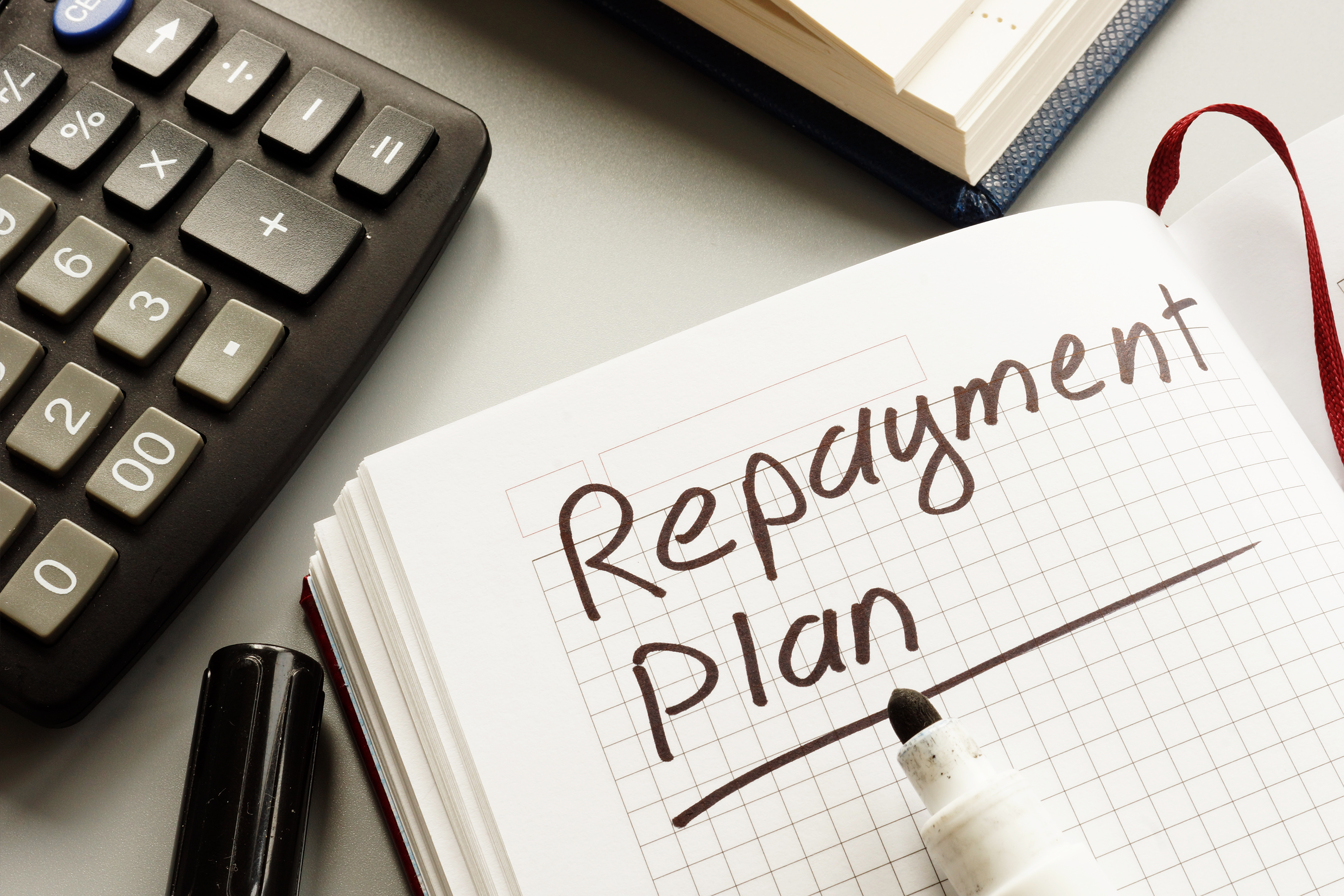Try the snowball method
The snowball method of debt repayment can give you a simple plan to follow. Take stock of everything you owe: different accounts, types of loans, and credit card debt. Then make the minimum monthly payments on everything except the smallest debt. For the debt with the lowest amount owed, pay it off as aggressively as you can. Put your extra pennies toward bigger payments, and budget as much as you can each month towards paying it back.
When you’ve paid off that first balance, move on to the next smallest, putting everything you were paying on the first one towards the next in line in addition to the minimums you are already paying. So if you were paying $100 a month on your credit card and making $300 minimum payments on your car loan, once you pay off your credit card, you have $400 to pay toward your car loan each month. Your repayment snowballs over time, picking up steam as you pay more off.

Do the math on the avalanche method
The avalanche method is similar to the snowball method. Instead of starting with the lowest balance owed, start with the most expensive debt. That’s the one with the highest interest rate, the one that costs you the most money to leave unpaid.
You do have to do some math here and take a look at the different terms of your loans and credit cards. Usually, it benefits you most to pay down high-interest loans like credit cards first since interest can easily spiral on these simple-interest loans. But some loans, like auto loans, may be precomputed loans. That means the interest was calculated into the total loan amount when you took out the loan, so you don’t benefit from paying it off faster. And some loans may even come with a penalty for early repayment. Often, it’s in your best interest to save those for last, continuing to make monthly payments in the meantime.
Consolidate if you can
One type of consolidation is a credit card balance transfer. If you have credit card debt, you’re trying to pay off on multiple credit cards, this could be a good option. You can apply to open a low-or no-interest credit card and do a balance transfer from your high-interest credit card to the new low-interest card. That way, you can pay less interest as you continue to aggressively pay off your credit card debt.
A debt consolidation loan can also help, especially when you’re dealing with higher balances. You can apply for a personal loan in the amount that you owe across your debts. The key is to find a loan with lower interest rates than what you’re currently paying. Then you can use that loan to pay off your other debts and have one manageable monthly payment going forward at a lower interest rate.

Rapid fire round
There are lots of strategies out there for debt repayment. And the one that works best for you and your situation might be pretty simple. Here are a few extra tricks to try when it comes to paying off your debt.
-
Make extra payments to principal
-
Pay more than the minimum each month
-
Make payments every paycheck instead of monthly
-
Budget, budget, budget
-
Use automated online bill pay so you don’t forget due dates
RMCU has your back when it comes to personal finance. Not sure where to start with your debt consolidation? Give one of our personal loan officers a call. Need help setting up online bill pay? Reach out to the Member Resource Center. We’re always ready to help when you need it.



